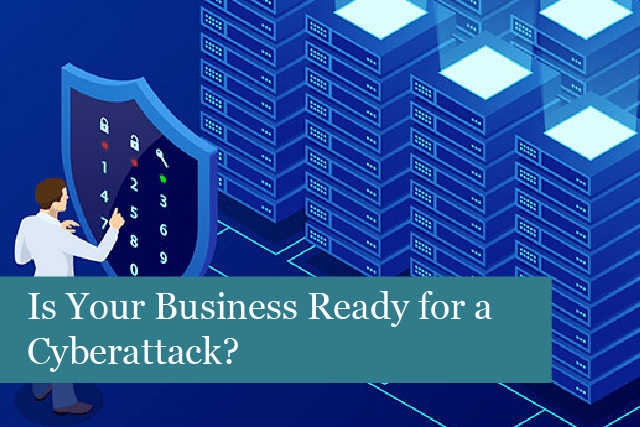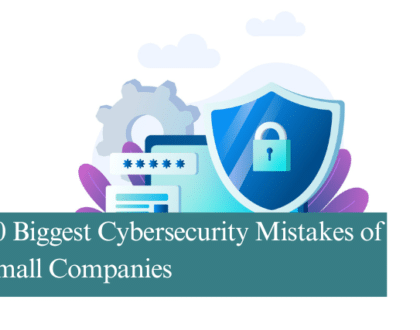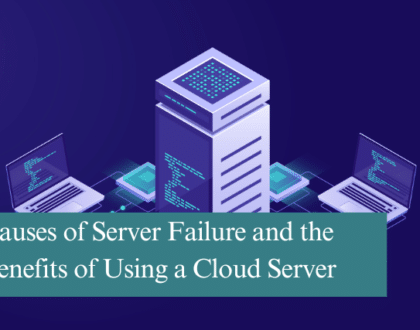
Cyberattacks are on everyone’s mind these days, as we hear of ever more numerous attacks in the news. These attacks hit companies of all sizes, and even individuals, with disastrous effects.
Is your company prepared for a cyberattack? Have you stopped to consider how your business would be affected if attacked by cyber criminals?
If your answer to these questions is no, then it’s time to put together an action plan, which includes steps to take in the event of a cyberattack. Cybersecurity is more important now than ever.
Worst Case Scenario of a Cyber Attack on Your Business
On a beautiful Monday morning, you head to work, sit down and turn on your computer. You’re in the zone and ready to get down to work. Only you notice things don’t seem to be working as they should. Perhaps your program won’t open.
OK, sometimes it takes a little time before it loads; however, you try to access another program, only to find it doesn’t work, either. You try yet another program, with the same result and you finally realize something has gone terribly wrong. You may think it’s possibly only your own computer, but then others come to work and have the same issues. Then it hits you, the company’s been hacked.
Other symptoms of a cyber attack may include:
- Everyone’s passwords have been changed.
- Critical files have been deleted or are not accessible.
- A “new” software may have appeared on the system.
- If some apps and software is working, your computer may be repeatedly accessing the Internet, even when you’re not using it.
- Have extra browser windows appeared? Or perhaps some new toolbars?
- Your browser can’t work due to all the popups
- Your mouse is moving on its own
- Your antivirus and other anti-malware software may not be working or may have disappeared.
- Customers and other people in your contacts list are calling you because they’re receiving strange emails, which you tell them you haven’t sent.
- You receive invoices or find payments for things you have not purchased.
These are some of the most common symptoms after being hit by some type of hacks or cyberattacks. Any size business can be hit with by a hacker—even small businesses. Many small businesses think they’re safe as hackers only go after the big companies. This is simply not true. Small businesses are equally in danger and must take cyber security seriously.
What is a Cyber Attack?
This is a situation when an unauthorized person or group somehow gains access to your computer network. There are many methods hackers use to gain entry to you network. It may be through a link in an email, a portal on your computer, etc.
When a business, large or small, are attacked, they suffer major disruptions in service. Attacks can even steal money, a company’s confidential information, and more. Not only are these attacks disruptive, they’re also expensive and unsettling. Becoming the victim of a cyber criminal feels much the same as if someone enters your home to steal your belongings.
According to the 2019 Hiscox Cyber Readiness Report, the most common concerns businesses have when it comes to cyberattacks are:
- Email attack: being hit through their emails, compromising email addresses and contacts, phishing attacks, being hit by malware through emails, funds will be stolen, etc.
- Ransomware: is the second most concerning type of attacks for businesses. Ransomware can lock you out of your network, while cybercriminals demand thousands or millions of dollars (or more) in ransom in order to restore access. The worst part is, even if the company pays the ransom, criminals may not unlock the system and files they’ve locked.
It’s a fact—60% of businesses go out of business within a year of experiencing a cyberattack. That ought to be a very sobering figure. Many businesses fail to take steps to protect their sensitive information, as they see cyberattack preparedness as a huge expense.
While preparing for a cyberattack that may not can be expensive, preparedness is a small price to pay when compared to the toll a ransomware or other type of attack can take on your business. In fact, preparedness is an investment in the company’s future, rather than an expense to avoid.
How to Protect Your Company from Cyberattacks
We don’t mean to sound all doom and gloom, but cyber security is a real issue. It pays to take action before your business gets hit; taking a pro-active stand now can save the company from huge losses later and keep the business going forward, rather than failing.
Here are some steps you can take to secure your company against cyberattacks:
1). Evaluate your network for vulnerabilities: this can be a difficult task, but one that will help you prepare. Knowing where your systems are vulnerable including unpatched computers or other devices, etc. Experts recommend conducting an annual evaluation to check for vulnerabilities or having a cyber security run a security assessment.
2). Delegate one person: to cyber security issues. Make sure they’re someone who understands the technical aspects of your network, system and equipment. Also be sure to let them and others know they’re in charge of this area.
3). Education: train all employees on the need to be careful with emails from unknown senders. Remind them not to open attachments (any type) from people they don’t know and/or avoid using links in such emails. In addition, enforce the regular changing of passwords; you may consider using a password management tool, such as LastPass, to help workers remember they’re passwords. These tools can also generate new, more complex passwords that are more secure. Train employees on how to use these tools to keep their email and the company’s infrastructure safe and protected.
4). Secure hardware: make sure that all hardware including laptops, company servers, mobile phones and other types of electronics are secure and not easy to steal.
5). Install antivirus & antimalware software: on the company’s network and devices that connect to the Internet. Antivirus and antimalware software actively protect by constantly running and evaluating triggers that could be criminal attacks on your network. The software runs periodically in the background, updates itself, etc. Some software can be expensive, but these may not always be the best solution for your business. Look for features that you need that will more than adequately keep your systems safe.
6). Backups: if you don’t have a backup plan in action, then now’s the time to develop a plan. Backing up data can be priceless if your network fails or is held for ransom. With backups of company files and information, it’s much easier and faster to get back up and running after an attack.
7). Cyber security insurance: companies often choose to forego the expense of cyber insurance; however, specific cyber insurance offers protection for all aspects of your business in the event of a cyberattack. Rather than an unwanted expense, view this as another investment in your company’s security.
While developing and implementing a plan may appear as useless expense now, keep in mind that the incidents cyberattacks are increasing each year. Being proactive can mean your business will be able to get back and running in spite of suffering a security breach.
Recommended Posts

10 Biggest Cybersecurity Mistakes of Small Companies
18th April 2025

The Importance of Planning in Business IT Solutions
11th April 2025

